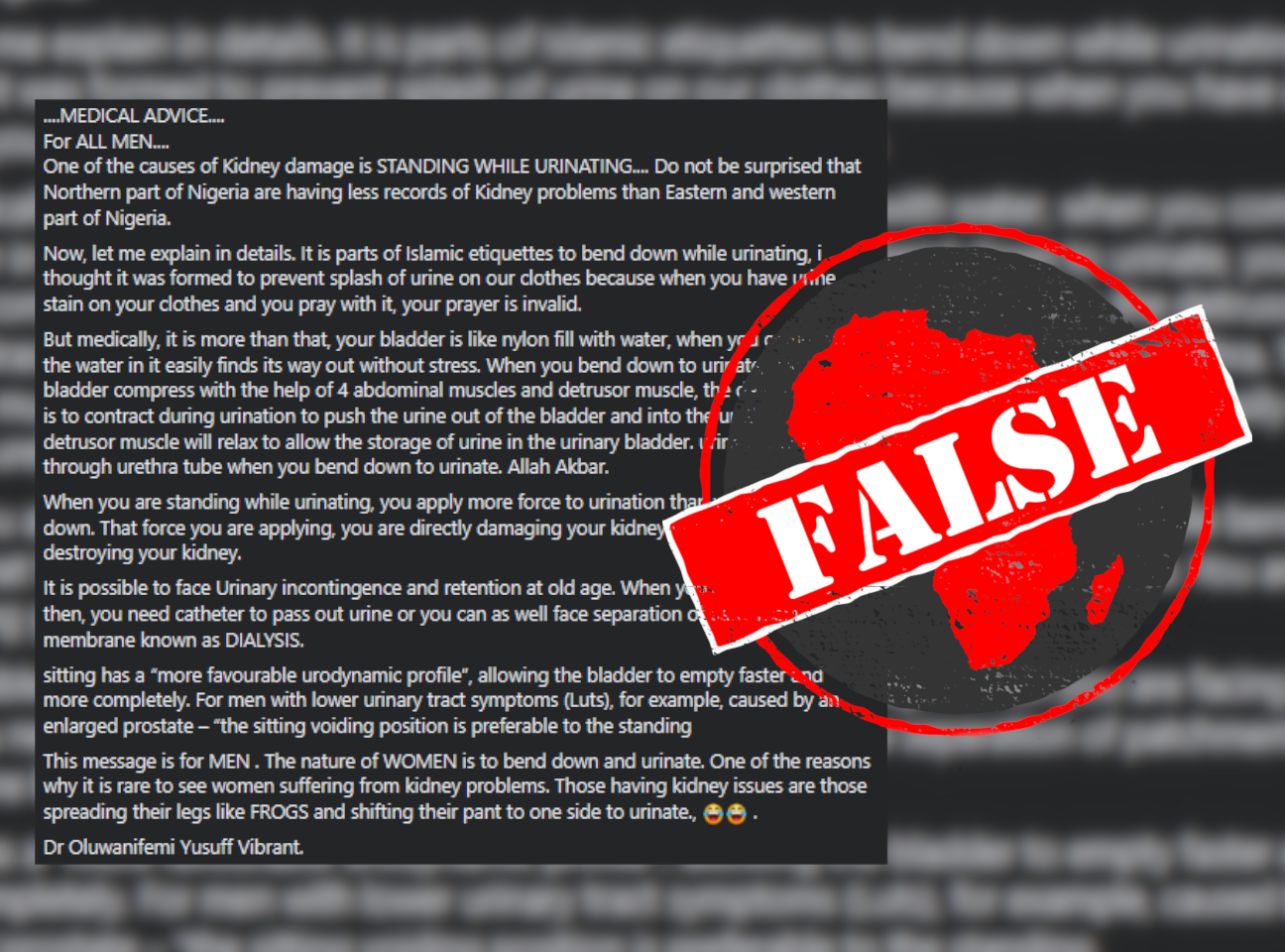IN SHORT: There have been alarming claims on social media that standing to urinate can cause kidney damage. This is not true.
“One of the causes of Kidney damage is STANDING WHILE URINATING,” begins a message posted on Facebook in Nigeria.
“When you are standing while urinating, you apply more force to urination than while bending down. That force you are applying, you are directly damaging your kidney capsule. You are destroying your kidney,” it says.
The kidneys, located in the lower right and left parts of the abdomen, clean the blood and remove toxins and waste from the body in the form of urine.
The same claim appeared on Facebook here, here, here , here and here.
But does standing while urinating damage your kidneys? We checked.

The urinary system
The urinary system consists of the kidneys, ureters, bladder and urethra.
The kidneys filter waste and excess water to produce urine, which travels through the ureters to the bladder.
A full bladder triggers urination as the muscles contract and force urine out through the urethra, completing the elimination of waste and maintaining fluid balance.
If your kidneys are damaged, waste products and fluid can build up in your body. This can cause swelling in your ankles, nausea, weakness, poor sleep and shortness of breath.
If left untreated, the damage can progress and eventually lead to kidney failure, a serious and potentially life-threatening condition.
Peeing while standing up doesn't damage your kidneys
Agbaji Oche, a professor of nephrology and HIV medicine at the faculty of medical science at the University of Jos in Nigeria, told Africa Check that urinating while standing has nothing to do with kidney damage.
“Standing up while urinating does not lead to kidney damage in any way,” he said.
The US Centers for Disease Control recommends managing healthy blood pressure and cholesterol levels, eating low-salt foods, increasing fruit and vegetable intake, staying physically active and taking medications as prescribed. These measures help to keep your kidneys healthy.
Republish our content for free
For publishers: what to do if your post is rated false
A fact-checker has rated your Facebook or Instagram post as “false”, “altered”, “partly false” or “missing context”. This could have serious consequences. What do you do?
Click on our guide for the steps you should follow.
Publishers guideAfrica Check teams up with Facebook
Africa Check is a partner in Meta's third-party fact-checking programme to help stop the spread of false information on social media.
The content we rate as “false” will be downgraded on Facebook and Instagram. This means fewer people will see it.
You can also help identify false information on Facebook. This guide explains how.


Add new comment